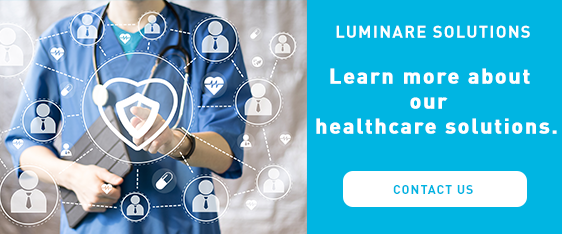
Turning Healthcare Data into Insight with AI and Machine Learning
By: Natalie Cheng
July 19th 2021
“The goal is to turn data into information and information into insight.” – Carly Fiorina, Former Chief Executive Officer, Hewlett Packard
What Carly Fiorina said reinforces the fact that data is valuable, but only when it is turned into something that can be acted upon (insight). You can look at a list of numbers, but they don’t mean anything until you turn it into information and give context. Currently, healthcare organizations have a treasure trove of data, but most of that data is hidden or doesn’t come with context so you can’t act upon it. How can healthcare organizations turn data into insight?
Automating Manual Data Abstraction
In healthcare organizations, there is still a continued dependence on data entry through manual chart abstraction. This takes up valuable time and the information can still be incomplete. According to Cardiology Magazine, “The efforts of the hospital personnel responsible for data abstraction from the EHR are often a key driver in the decisions on what data to include in a registry. This usually limits data capture to only consensus-derived EHR variables, which typically characterizes a small fraction of the patient information within the EHR.”
To combat manual data abstraction, artificial intelligence (AI) and its subset, natural language processing (NLP) can help.
In a report titled ‘The rise of artificial intelligence in healthcare applications’, the author details a variety of ways that artificial intelligence can be applied to healthcare including precision medicine, medical visualization, intelligent personal health records, and robotics. The role of artificial intelligence in precision medicine is interesting because it provides the possibility of tailoring healthcare interventions and care to patients based on “disease profile, diagnostic or prognostic information, or their treatment response.” Having a more tailored approach to treating patients will help reduce healthcare costs, reduce adverse drug responses, and enhance the effectiveness of drugs. In precision medicine, machine learning algorithms can be used to dig through large datasets to help predict a prognosis and the best treatment strategy for a specific patient.
Another area that AI can impact is the personal health record. For healthcare administrators, digging through EMRs to find relevant patient data can be time-consuming. Fortunately, natural language processing (NLP) aids in this task. According to the report, “NLP is crucial for many applications of big data analysis within healthcare, particularly for EMRs and translation of narratives provided by clinicians. It is typically used in operations such as extraction of information, conversion of unstructured data into structured data, and categorization of data and documents.” In addition, benefits from utilizing NLP include:
- Efficient billing – NLP can extract information from physician notes and assign medical codes for billing
- Authorization approval – NLP can use information from physician notes to prevent delays and administrative errors
- Clinical decision support – NLP can facilitate decision-making for team members
- Medical policy assessment – NLP can compile clinical guidance and formulate an outline for care
With AI technology, providers will be able to extract information from the EMR to better treat patients. For example, AI technology can comb through large databases of information to detect trends and predict health outcomes, having a major impact on the future of patient care and treatment. Imagine being able to detect a disease in its early stages and then being able to treat the patient earlier. That could make a difference in the patient’s lifespan.
Are you looking for automated solutions to help retrieve metrics to meet certification requirements or looking for AI-based solutions to comb through your data? Contact us and we can guide you through our solutions.


